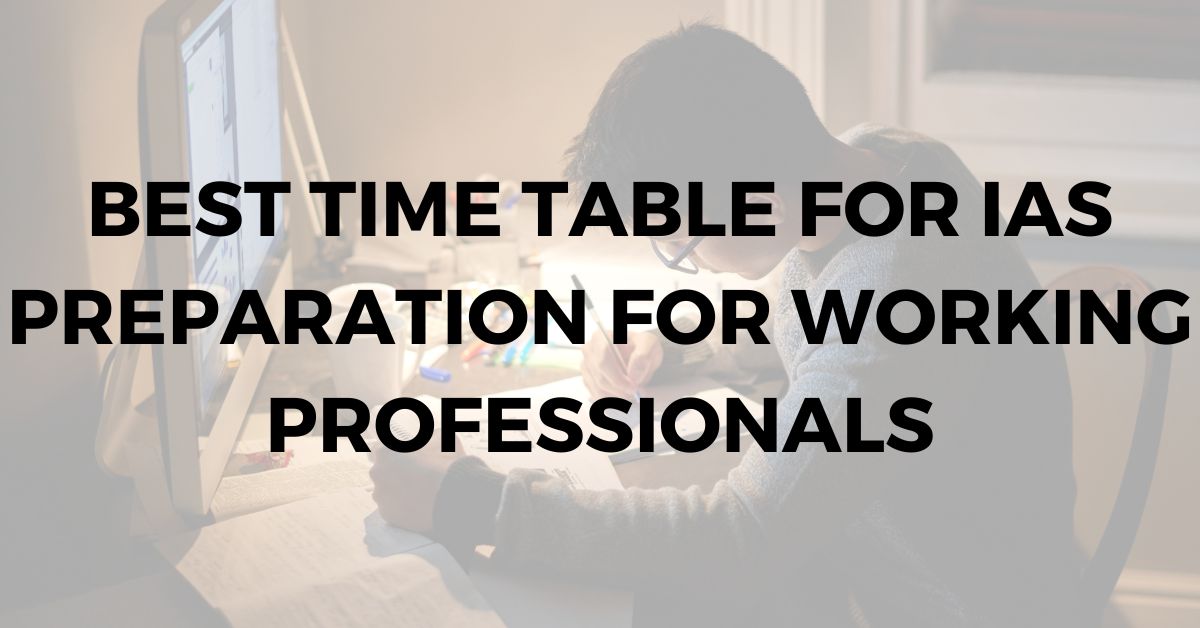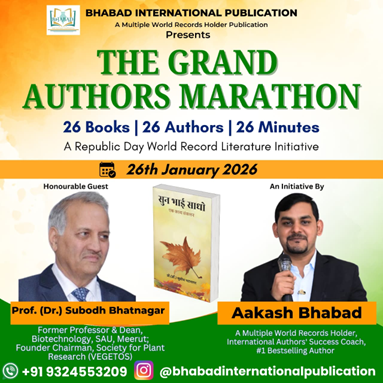
IAS Preparation
Are you preparing for the IAS exam but not able to fix study hours? If yes, then this article will guide you on how you can devote time for IAS Preparation, even if you are a working professional or not. A study plan for UPSC Preparation is a must for passing the IAS exam. Some candidates assert that they spend fifteen to sixteen hours a day studying for the UPSC exam. Some people only need to study for six to seven hours a day to pass the exam. In this case, if one wishes to join the Civil Services, adhering to a UPSC Preparation Time Table is beneficial. Let’s find out in this article, what can be the solution to your problem of time management for IAS preparation.
Time Table for IAS Preparation
While studying for the IAS test while working can be challenging, it is feasible with the right planning and a Best Time Table for IAS Preparation for working professionals. Working professionals can maximize their preparation for UPSC Exam and time management abilities with the help of this comprehensive guide. Refer to the table below to find a more suitable and appropriate time table for you.
| Best Time-table For IAS Preparation | |
| Time | Activity |
| 05.30 A.M. | Wake Up |
| 05.30 A.M. to 06.30 A.M. | Exercise, Yoga, Walking, Running, etc. |
| 07.00 A.M. to 09.00 A.M. | Study Slot 1 (2 Hours) |
| 09.00 A.M. to 10.00 A.M | Breakfast |
| 10.00 A.M to 01.00 P.M. | Study Slot 2 (3 Hours) |
| 01.00 P.M. to 02.00 P.M. | Break for Lunch |
| 02.00 P.M. to 05.00 P.M. | Study Slot 3 (3 Hours) |
| 05.00 P.M. to 05.30 P.M. | Tea Break |
| 05.30 P.M. to 06.00 P.M. | Leisure Time |
| 06.00 P.M. to 09.00 P.M. | Study Slot 4 |
| 09.00 P.M. to 10.00 P.M. | Dinner Time |
| 10.00 P.M. | Bedtime |
Time Table For UPSC Preparation On Weekends
If you want to identify applicants for higher-level civil service positions within the Indian government, it is held by the Union Public Service Commission. The Indian Administrative Service (IAS), Indian Foreign Service (IFS), and Indian Police Service (IPS) make up this group.
Professionals in the workforce who aspire to the UPSC should have a different plan for their weekend preparation. This approach, which covers the subject comprehensively, will help students stay competitive with other candidates. On weekends, candidates can adhere to the following table:
| Time | Weekend Schedule |
| 5:00- 6:00 AM | Exercise and getting ready |
| 6:00-9:00 AM | Slot 1 (Study Current Affairs) |
| 9:00-9:30 AM | Breakfast |
| 9:30-12:30 PM | Slot 2 ( Study Optional) |
| 12:30-2:00 PM | Lunch and Rest |
| 2:00-3:00 PM | Slot 3 (Study CSAT) |
| 3: 00- 6:00 PM | Slot 4 (Study Static Subject) |
| 6:00 -7:00 PM | Tea Break |
| 7:00-9:00 PM | Slot 5 (Solve MCQs and Practice Answer Writing) |
| 9:00 PM | Dinner |
Understanding the Preparation for IAS Challenges
A full-time job and IAS preparation must be balanced, which calls for careful planning and self-control. It may consist of few roadblocks but you must adhere to a best time table for IAS Preparation for working professionals.
- Limited study hours
- Fatigue from work
- Balancing personal life and study time
Importance of a Structured Timetable for IAS Preparation
There are some candidates who are working professionals and they must require a specific structured & Best time table for IAS Preparation.
- Ensuring consistent study hours
- Covering the vast syllabus systematically
- Maintaining work-life balance
Time Table for UPSC Exam Preparation for 1-Year
The candidates will need at least a one-year study schedule to prepare for the UPSC test. They should carefully plan their frequent revision and practice while covering the extensive material. First, you must divide the year into three sections: the first six months should be devoted to covering the fundamentals and standard texts of General Studies. You can also cover elective areas in this. Apart from this, the next three months should be devoted to in-depth revision and more advanced material. The last three months should be devoted to thorough editing, simulated examinations, and practice drafting responses. Set aside time every day to read editorials, periodicals on current events, and go over your notes. Tracking development and pinpointing areas for growth requires regular mock exams every month and weekly assessments.
| 1-Year Study Time Table For UPSC Exam | |
| Time | Activity |
| Mid of June | After reading the NCERTs, students should review the previous year’s questions for each subject to see whether there are any unanswered questions. In one and a half months, finish the first reading of the suggested NCERTs for grades 6 through 12. |
| July to December | Every applicant should read the required texts, but they should also take part in any prelims test series to monitor their development and make sure their coursework meets the requirements of the UPSC CSE exam. The three-pronged approach for these months will be to revise using the NCERT test series, learn advanced subjects using an online GS Foundation course, and finish optional for the UPSC Mains exam. |
| January and February | All candidates taking the IAS exam should have finished their GS courses and 80% of their optional courses by this point. After that, an aspirant must use the next two months to voluntarily finish and revise the GS Course. |
| March and April | By the end of April, each applicant must finish over 8,000 multiple-choice questions. As merely rehearsing MCQs is insufficient. In April, candidates also need to swiftly evaluate these multiple-choice questions. The CSE prelims evaluation is a competitive exam, and these two months are critical for preparing for it. The application forms are made accessible in February. |
| May | For most applicants, the month leading up to the preliminary exam is quite important because it will affect their results. Each applicant must do roughly five complete mock tests in addition to at least two fast evaluations of their entire course. This is how you can adhere to the best time table for IAS Preparation for working professionals. |
Conclusion
It may appear difficult at first but you will be able to accomplish the paper as well as the study hours you devote for the exam. The IAS exam is very much approachable for working professionals as well. If you have a well-planned schedule and you are able to set priorities for your work. Even after that you can maximize your free time, and maintain consistency, then you can ace the IAS exam easily. It is possible to properly juggle your work and IAS preparation with perseverance and strategic planning. Therefore, keep in mind to choose the best time table for IAS Preparation. To succeed in the UPSC exam, keep in mind that disciplined work and persistence are essential.





